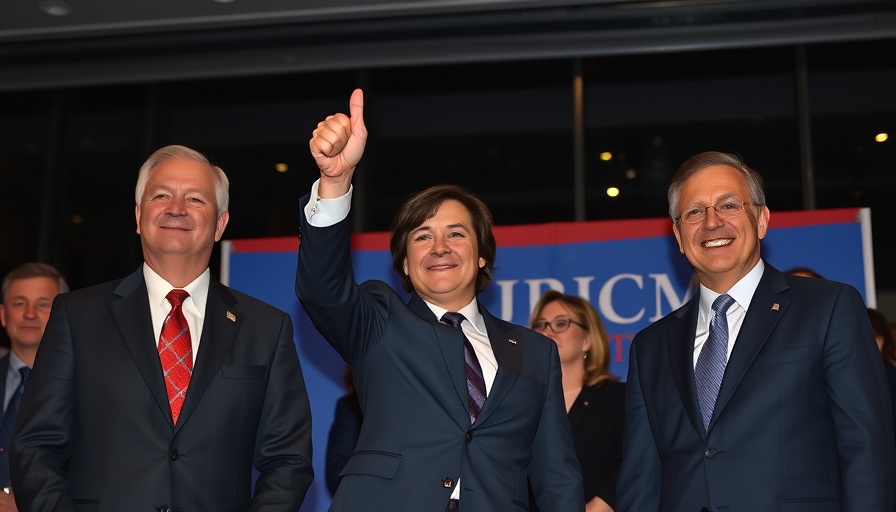
The Rise of Lee Jae-myung: A Journey from Adversity to Power
In the intricate tapestry of South Korea’s political landscape, few figures embody the tumultuous blend of struggle, resilience, and determination quite like Lee Jae-myung. Recently elected as the nation’s president, Lee represents not only a stark shift from his conservative predecessor, Yoon Suk Yeol, but also a personal narrative that speaks volumes about the country’s ongoing battle with inequality and corruption.
From Childhood Hardships to Political Firebrand
Lee’s early life reads like a narrative of adversity. Born into poverty, he became a child laborer at a young age to help support his family, enduring not only financial hardship but also physical trauma when an accident at work left him with a permanent arm disability. Lee’s resilience shone through his despair, which culminated in two suicide attempts that ultimately did not deter him from pursuing a brighter future.
His breakthrough came when he was accepted into Seoul’s Chung-Ang University on a full scholarship, launching him into the legal field as a human rights lawyer. Lee’s fiery speeches and vehement criticisms of the governmental status quo during the Park Geun-hye administration catapulted him into the public eye, making him a symbol of liberal resistance.
Expectations Amidst Political Uncertainty
With Lee's election comes a chorus of mixed sentiments. Supporters hail him as a potential beacon of change, capable of dismantling systemic issues that have plagued the country for decades. However, opponents warn that his tendencies to suppress dissent may exacerbate the already polarized socio-political climate. The future of South Korea may hinge on Lee’s ability to navigate these turbulent waters while addressing lingering grievances over economic disparities and governmental accountability.
Political Dynamics at Play
Lee steps into his presidency following a significant political upheaval, where Yoon’s controversial imposition of martial law sparked widespread unrest. This context amplifies the concerns surrounding Lee’s administration - will he prioritize unity and healing, or will he further entrench the divisions that have long characterized South Korean politics?
Looking Ahead: The Road to Transformation
As Lee embarks on his five-year term, it’s imperative for both supporters and skeptics to monitor his initiatives closely. Economic reforms aimed at reducing inequality, alongside efforts to strengthen democratic institutions, will define his legacy. Early indicators suggest that Lee might seek to implement policies fostering a fairer distribution of resources and a more transparent government.
Lee Jae-myung: A Reflection of Society's Hopes and Fears
Lee’s life story resonates beyond politics; it mirrors the hopes and fears of a nation grappling with its identity amidst rapid global changes. His election may symbolize a shift toward a more progressive South Korea, where voices long drowned out by the powerful may finally gain traction.
As international observers and citizens alike watch eagerly, the coming years will be a litmus test for Lee’s promises of reform. Can he deliver on the aspirations of millions who voted for change, or will his presidency further sow division among an already fragmented society?
Rising Tensions: Implications for the International Stage
As South Korea navigates its internal challenges, the implications extend beyond its borders. The tension with North Korea continues to loom, and how Lee manages foreign relations will be just as critical. Advocating for diplomacy while steering clear of military provocations will be a delicate balancing act.
Conclusion: The Path Forward
In summary, Lee Jae-myung’s presidency is layered with complexities that reflect both individual and national narratives. The anticipation surrounding his leadership offers both a glimpse of hope and caution. As South Korea moves into this new chapter, the collective resolve to demand accountability and transformation will be pivotal.
Now more than ever, it is crucial for citizens and observers to keep the dialogue alive, push for necessary reforms, and engage in the democratic processes that define their society. The choices made today will resonate for generations to come.
 Add Row
Add Row  Add
Add 




Write A Comment